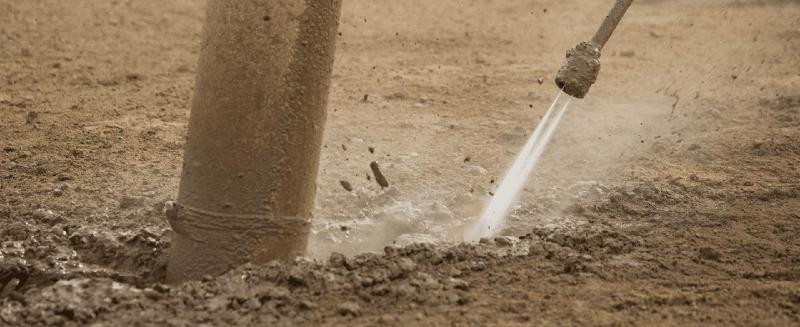How To Decide Between Hydro Excavation And Air Excavation
They each have some important differences.
Posted 17:14 April 19, 2023
Last Updated 17:14 April 19, 2023

Hydro excavation and air excavation are both methods used for excavation in construction projects, but they differ in how they remove soil and debris. Here are some factors to consider when deciding between hydro excavation and air excavation for your medium-sized construction project:
Soil Conditions
Hydro excavation is typically more effective for excavating in moist or clayey soils, as water can help to soften the soil and make it easier to remove. On the other hand, air excavation is better suited for dry or sandy soils, as the air can help to loosen the soil without adding moisture.
Precision and Control
Hydro excavation generally provides more precise and controlled excavation compared to air excavation. The high-pressure water used in hydro excavation can accurately remove soil without causing damage to nearby utilities, underground structures, or tree roots. Air excavation, on the other hand, may be less precise and can potentially cause damage to delicate or sensitive structures.
Debris Management
Hydro excavation produces a slurry of water and soil that needs to be contained and managed properly, whereas air excavation produces dry soil and debris that can be easily collected and disposed of. Depending on the project requirements and local regulations, managing the slurry from hydro excavation may require additional steps and resources for proper disposal.
Speed and Efficiency
Air excavation is generally faster than hydro excavation as it does not require the additional step of managing the slurry. Air excavation can quickly remove soil and debris, making it more efficient for certain types of projects with tight timelines or where speed is a priority.
Safety
Both hydro excavation and air excavation are generally considered safe methods of excavation, as they minimize the risk of damaging underground utilities or structures compared to traditional excavation methods. However, hydro excavation involves the use of high-pressure water, which may pose a risk if not handled properly, and appropriate safety precautions should be taken during operation.
Cost
The cost of hydro excavation and air excavation can vary depending on the specific project requirements, location, and availability of equipment and resources. In general, air excavation may be more cost-effective for projects with dry or sandy soils, whereas hydro excavation may be preferred for projects with moist or clayey soils, but it also requires additional resources for managing the slurry.
Conclusion
In summary, hydro excavation may be more suitable for projects with moist or clayey soils, where precision, control, and proper slurry management are important factors. Air excavation may be more appropriate for projects with dry or sandy soils, where speed, efficiency, and cost-effectiveness are prioritized. It's recommended to consult with excavation professionals and consider the specific requirements and conditions of your project to make an informed decision.
If you'd like further information regarding your upcoming construction project, contact us here at Hole Hogz. We can help you choose the right excavation method for your project. We service Las Vegas, Henderson, Boulder City, and most parts of Clark County Nevada.
